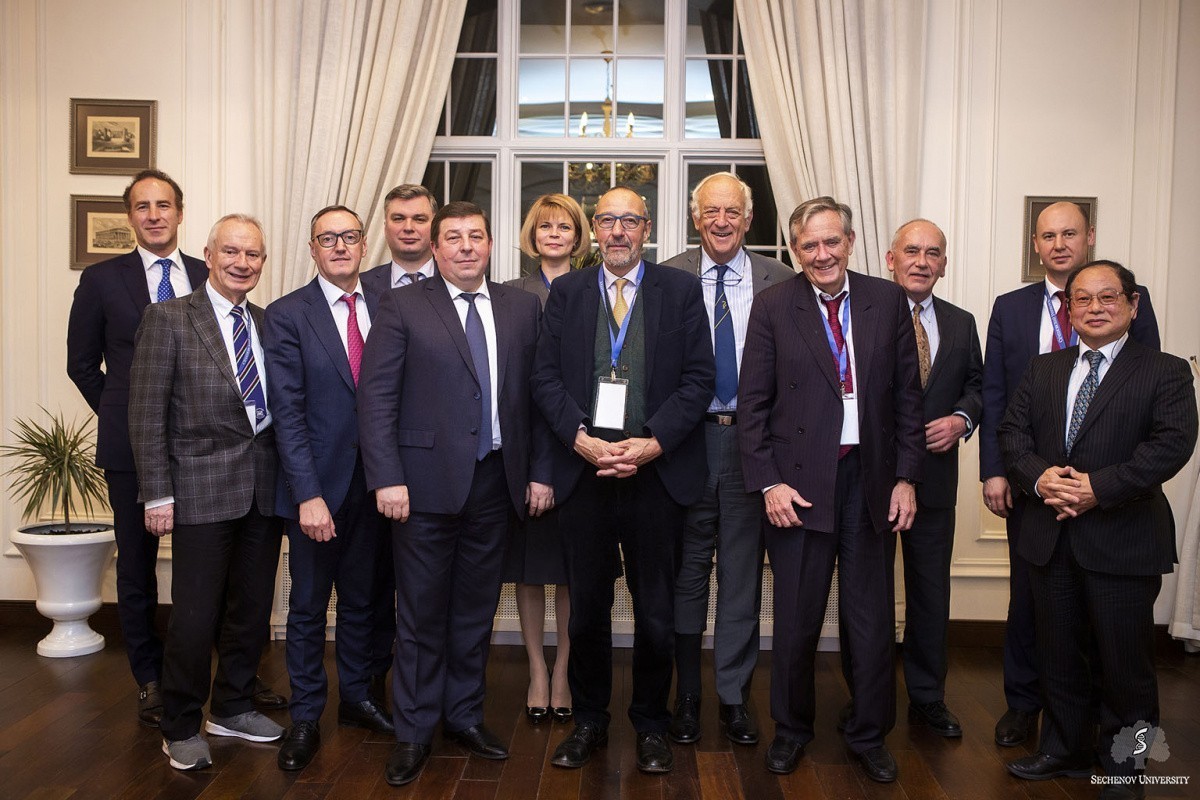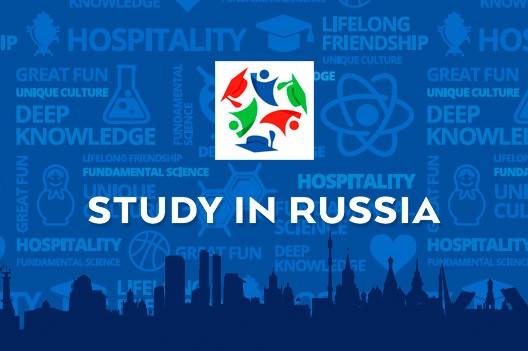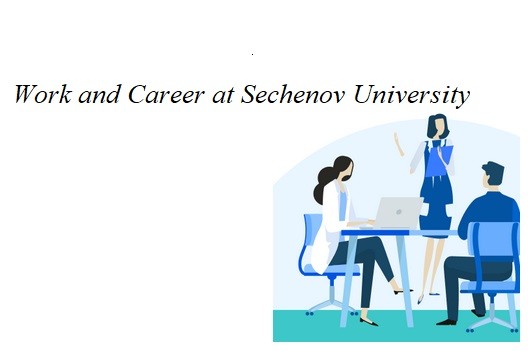- Абитуриенту
-
Обучающемуся
- Я – профессионал
- Локальные нормативные акты
- Образовательные программы
- Стоимость обучения
- Университет - обучающемуся
- Центр карьеры
- Учебный центр по маркировке
- Учеба и наука
- Школы мастерства
- Комфортная среда обучения
- Образовательные стандарты
- Стипендии и материальная поддержка
- Вакантные места
- Общежития
- Сотруднику
- Аккредитация специалистов
-
About University
- Mission & Brand Strategy
- University Leadership
- Rector's Welcome
- History
- Regulatory Documents
- Contacts
- Staff
- International Recruitment
- Partners
Applicants- Why Sechenov University
- Degree Programmes in English
- Preparatory Courses
- Non-Degree Programmes
- Transfer from other Institutions
12.12.2019Sechenov presents new strategy for medical research

The strategy for the development of medical research at Sechenov University was presented at the meeting of the International Advisory Council, held on 20 November.
The members of the Council include David Neal, Professor of Surgical Oncology at the University of Oxford, Rudolf Valenta, Director of the Department of Pathophysiology and Allergy Research at the Medical University of Vienna, Friedrich Luft, Director of the Experimental and Clinical Research Centre in Charité – Universitätsmedizin Berlin, Teruhito Mochizuki, Chairman of the Department of Radiology at Ehime University School of Medicine, John Temple, President of the British Medical Association, and Shahrokh Shariat, Professor of the Department of Urology at the Medical University of Vienna. The invited guest was Reinhard Bittner, the Honorary Director of the surgical clinic of the University of Tübingen, Professor of the Department of Hospital Surgery of Sechenov University.
The meeting was held in an updated format: in addition to the traditional plenary session, there were sections on surgery and urology, where leading urologists and surgeons of Sechenov University presented current research projects and received expert recommendations from leading world scientists.
Opening the plenary session, First Vice-Rector Andrey Svistunov spoke about the results achieved by the University within the Project 5-100 Roadmap, as well as presented further steps to improve global academic competitiveness.
The main goal, said the Vice-Rector, is to become a world-class university in Life Sciences, such as biotechnology and cell biology, molecular and oncological genetics, bioengineering, immunology, personalised health management and bionic technologies. By 2025, Sechenov University should become a national centre of technological competence in the field of biomedicine, and by 2030 it should reach the world level Life Sciences.
In order to achieve its set goals and reach the international level, a new model of a medical research university has been developed, where the traditional clinical and educational core has been expanded through fundamental research in the field of natural sciences, engineering, technology and sociology.
The new model of a medical research university focuses on improving human health, but goes far beyond classical medicine. The basic principles for further growth are interdisciplinarity, translational research and digitalisation. According to Andrey Svistunov, when transforming the University, much attention will be paid to the development of greenfields – scientific and educational projects created with new technologies. Greenfield policy will be further developed with the opening of the Institute for Mathematical Modeling of Living Systems, Institute for Nutrition Science, Artificial Intelligence Centre for Health Management, and Centre of Humanities in Life Sciences.
In addition, Sechenov University ensures the connection of key health problems with the latest achievements of fundamental science. Interdisciplinary teams of clinicians, engineers, and scientists conduct research and generate ideas to solve public health problems at all stages of life. "The next step is to create the University Research Development Fund to carry out external review of projects by industry and experts as well as to assess the potential of projects in terms of implementation in practical health care", added the First Vice-Rector.
Denis Butnaru, Vice-Rector for Research, presented a report on the stages of implementation of the research strategy at Sechenov University. Currently, the University implements the concept of clinical research aimed at training young scientists. Employees of clinical units and departments have annual training based on a special educational cycle dedicated to biomedical statistics and clinical research design. The course is taught by Professors and Associate Professors of British universities in the English language. Sechenov University has selected a number of clinical areas, where students not only receive training, but must also conduct research under the guidance of a mentor, a specialist of the international level in this field. During the event, the experts also were presented with the Young Scientist of Sechenov University Project, where the trajectory of training students who decided to devote themselves to research activities is provided step by step. "Talent is the key to the success of the University. Interdisciplinary research programmes at the University provide the health sector with professionals who are ready to solve complex problems and work effectively in a changing environment", stressed Butnaru.
In his speech, Vice-Rector for Clinical Affairs and Continuing Education Viktor Fomin noted the importance of creating a global database for clinical research. To implement this project, it is planned to develop a line of AI software products, which will increase life expectancy and improve its quality, identify socially significant diseases in their early stages and give personalised recommendations for disease prevention.
In the second part of the meeting, sectional sessions on surgery and urology were held, where young scientists of Sechenov University had the opportunity to present their current projects, discuss the results and outline further research programmes with leading industry experts. The members of the Advisory Council highly appreciated the presented projects and highlighted the good level of language among young specialists.
Chairman of the surgical section, Professor of the Department of Hospital Surgery of Sechenov University Reinhard Bittner noted that the topics discussed constitute significant scientific interest, and gave a number of recommendations to improve the quality of research. In particular, he drew attention to the need for standardisation of diagnostic processes and for the introduction of special forms to report the condition of each patient. Such forms should be unified in order to provide the possibility of their being used not only by the attending physician, but also by other specialists. This will create an electronic database for further clinical research.
Chairman of the urology section and Professor of the Department of Urology at the Medical University of Vienna, Shahrokh Shariat, stated that "the main problem to be solved in the near future is to find ways to implement research results obtained by the Institutes of Biomedical Science and Technology Park in clinical practice because this distinguishes Sechenov University from other medical universities and gives it a competitive advantage."
Summarising the events, the experts highly appreciated the results of the work done within the implementation of the roadmap for the development of the University. "We are very pleased to see the significant progress that Sechenov University has made recently, and we are ready to provide comprehensive support in its further development. We were also pleasantly surprised by the high level of research projects presented by young scientists: there are many interesting ideas concentrated in the areas where the University will be able to take a leading position among world-class research centres," stressed Professor of Surgical Oncology at Oxford University David Neal.
The members of the Council agreed that, in the field of surgery and urology, it is necessary to develop a detailed programme for development and implementation of scientific research in clinical practice, and outlined a number of preliminary steps that should be carried out in close cooperation with international partners.
"The results of the global transformation of Sechenov University allow us to maintain positions in the world's leading rankings, indicating the progress made by the University over the past few years. This is related to the improving quality of scientific research and academic reputation, which received high international evaluations. Today we presented to the expert community the results of the continuous transformation of Sechenov University into a world-class university of Life Sciences, with an emphasis on relevant medical research, multidisciplinary education and implementation of developments in practical health care," summed up Petr Globychko, the rector of Sechenov University.
Embed on website
Sechenov presents new strategy for medical research

The strategy for the development of medical research at Sechenov University was presented at the meeting of the International Advisory Council, held on 20 November.
The members of the Council include David Neal, Professor of Surgical Oncology at the University of Oxford, Rudolf Valenta, Director of the Department of Pathophysiology and Allergy Research at the Medical University of Vienna, Friedrich Luft, Director of the Experimental and Clinical Research Centre in Charité – Universitätsmedizin Berlin, Teruhito Mochizuki, Chairman of the Department of Radiology at Ehime University School of Medicine, John Temple, President of the British Medical Association, and Shahrokh Shariat, Professor of the Department of Urology at the Medical University of Vienna. The invited guest was Reinhard Bittner, the Honorary Director of the surgical clinic of the University of Tübingen, Professor of the Department of Hospital Surgery of Sechenov University.
The meeting was held in an updated format: in addition to the traditional plenary session, there were sections on surgery and urology, where leading urologists and surgeons of Sechenov University presented current research projects and received expert recommendations from leading world scientists.
Opening the plenary session, First Vice-Rector Andrey Svistunov spoke about the results achieved by the University within the Project 5-100 Roadmap, as well as presented further steps to improve global academic competitiveness.
The main goal, said the Vice-Rector, is to become a world-class university in Life Sciences, such as biotechnology and cell biology, molecular and oncological genetics, bioengineering, immunology, personalised health management and bionic technologies. By 2025, Sechenov University should become a national centre of technological competence in the field of biomedicine, and by 2030 it should reach the world level Life Sciences.
In order to achieve its set goals and reach the international level, a new model of a medical research university has been developed, where the traditional clinical and educational core has been expanded through fundamental research in the field of natural sciences, engineering, technology and sociology.
The new model of a medical research university focuses on improving human health, but goes far beyond classical medicine. The basic principles for further growth are interdisciplinarity, translational research and digitalisation. According to Andrey Svistunov, when transforming the University, much attention will be paid to the development of greenfields – scientific and educational projects created with new technologies. Greenfield policy will be further developed with the opening of the Institute for Mathematical Modeling of Living Systems, Institute for Nutrition Science, Artificial Intelligence Centre for Health Management, and Centre of Humanities in Life Sciences.
In addition, Sechenov University ensures the connection of key health problems with the latest achievements of fundamental science. Interdisciplinary teams of clinicians, engineers, and scientists conduct research and generate ideas to solve public health problems at all stages of life. "The next step is to create the University Research Development Fund to carry out external review of projects by industry and experts as well as to assess the potential of projects in terms of implementation in practical health care", added the First Vice-Rector.
Denis Butnaru, Vice-Rector for Research, presented a report on the stages of implementation of the research strategy at Sechenov University. Currently, the University implements the concept of clinical research aimed at training young scientists. Employees of clinical units and departments have annual training based on a special educational cycle dedicated to biomedical statistics and clinical research design. The course is taught by Professors and Associate Professors of British universities in the English language. Sechenov University has selected a number of clinical areas, where students not only receive training, but must also conduct research under the guidance of a mentor, a specialist of the international level in this field. During the event, the experts also were presented with the Young Scientist of Sechenov University Project, where the trajectory of training students who decided to devote themselves to research activities is provided step by step. "Talent is the key to the success of the University. Interdisciplinary research programmes at the University provide the health sector with professionals who are ready to solve complex problems and work effectively in a changing environment", stressed Butnaru.
In his speech, Vice-Rector for Clinical Affairs and Continuing Education Viktor Fomin noted the importance of creating a global database for clinical research. To implement this project, it is planned to develop a line of AI software products, which will increase life expectancy and improve its quality, identify socially significant diseases in their early stages and give personalised recommendations for disease prevention.
In the second part of the meeting, sectional sessions on surgery and urology were held, where young scientists of Sechenov University had the opportunity to present their current projects, discuss the results and outline further research programmes with leading industry experts. The members of the Advisory Council highly appreciated the presented projects and highlighted the good level of language among young specialists.
Chairman of the surgical section, Professor of the Department of Hospital Surgery of Sechenov University Reinhard Bittner noted that the topics discussed constitute significant scientific interest, and gave a number of recommendations to improve the quality of research. In particular, he drew attention to the need for standardisation of diagnostic processes and for the introduction of special forms to report the condition of each patient. Such forms should be unified in order to provide the possibility of their being used not only by the attending physician, but also by other specialists. This will create an electronic database for further clinical research.
Chairman of the urology section and Professor of the Department of Urology at the Medical University of Vienna, Shahrokh Shariat, stated that "the main problem to be solved in the near future is to find ways to implement research results obtained by the Institutes of Biomedical Science and Technology Park in clinical practice because this distinguishes Sechenov University from other medical universities and gives it a competitive advantage."
Summarising the events, the experts highly appreciated the results of the work done within the implementation of the roadmap for the development of the University. "We are very pleased to see the significant progress that Sechenov University has made recently, and we are ready to provide comprehensive support in its further development. We were also pleasantly surprised by the high level of research projects presented by young scientists: there are many interesting ideas concentrated in the areas where the University will be able to take a leading position among world-class research centres," stressed Professor of Surgical Oncology at Oxford University David Neal.
The members of the Council agreed that, in the field of surgery and urology, it is necessary to develop a detailed programme for development and implementation of scientific research in clinical practice, and outlined a number of preliminary steps that should be carried out in close cooperation with international partners.
"The results of the global transformation of Sechenov University allow us to maintain positions in the world's leading rankings, indicating the progress made by the University over the past few years. This is related to the improving quality of scientific research and academic reputation, which received high international evaluations. Today we presented to the expert community the results of the continuous transformation of Sechenov University into a world-class university of Life Sciences, with an emphasis on relevant medical research, multidisciplinary education and implementation of developments in practical health care," summed up Petr Globychko, the rector of Sechenov University.



